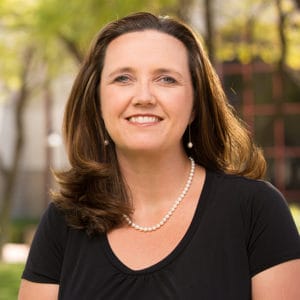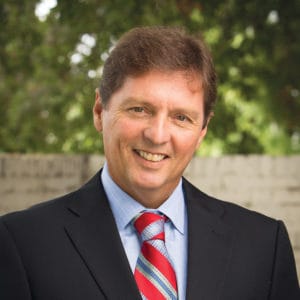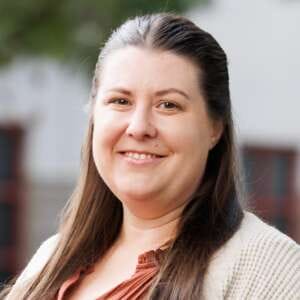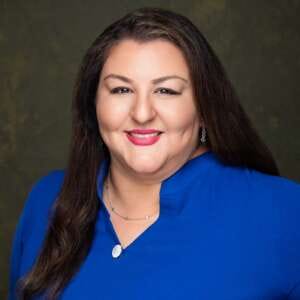Faculty
-

Tiffany Berry
Dean, School of Social Science, Policy & Evaluation
Full Research ProfessorResearch Interests
Educational Program Evaluation, K–12 Educational Curricula, Comprehensive School Reform
-

Stewart I. Donaldson
Distinguished University Professor
Executive Director, Claremont Evaluation Center
Executive Director, The Evaluators' Institute (TEI)
Research Interests
Positive Organizational Psychology, Health/Well-Being & Positive Functioning Across Cultures, Program Design & Re-Design, Culturally Responsive Theory-Driven Measurement & Evaluation
-

Michelle Sloper
Associate Professor of Evaluation Practice
Research Interests
Positive youth development, evaluation capacity building, evaluation use, continuous quality improvement, expanded learning programs
-

David M. Fetterman
Adjunct Professor, Visiting Scholar, and Research Fellow
Research Interests
Educational evaluation, medical education, higher education, empowerment evaluation, ethnography, tobacco prevention, tuberculosis elimination, social justice, gifted, migrant, and dropout prevention programs; homelessness, substance abuse prevention
-

-

Jennifer Villalobos
Assistant Professor
Research Interests
Social justice, positive organizational psychology, psychological capital, DEI, evaluation training
Curriculum
The D.Eval curriculum integrates the highest level of training in evaluation with transdisciplinary courses in consulting, interpersonal communication, and project management. The coursework builds on the practical evaluation modules and workshops offered through The Evaluator’s Institute at CGU, a leading provider of professional training and certificates in evaluation.
Additionally, you will create a practice-based portfolio to showcase your skills through hands-on projects like conference presentations and training workshops.
The D.Eval program culminates in a personalized capstone dissertation, typically from an area of interest in your professional field, that develops critical thinking, meta-evaluation, and systematic integration skills.
Degree Requirements
Coursework
- Evaluation Core: 20 units
- Methods/Statistics: 20 units
- Transdisciplinary: 6 units
- Practicum: 6 units
- Capstone or Dissertation: 8 units
- Electives: 12 units
Practicum
You will create a practice-based portfolio to showcase your skills through hands-on projects like conference presentations and training workshops.
Capstone
The D.Eval program culminates in a personalized capstone dissertation, typically from an area of interest in your professional field, that develops critical thinking, meta-evaluation, and systematic integration skills.
Competencies & Learning Outcomes
- Professional Practice: Execute skills needed to evaluate program effectiveness and identify opportunities for continuous program improvement including actionable recommendations to maximize program outcomes and impact.
- Methodology: Demonstrate proficiency in applied research methodologies suited for specific contexts and needs and professional reporting and documentation.
- Context: Conduct evaluations that respect diverse cultural contexts and perspectives and address inequities and inequalities in program outcomes.
- Planning and Management: Develop and execute evaluation plans that are accurate, feasible and useful
- Critical Thinking and Communication: Synthesize and communicate complex information in clear appropriate and articulate ways via written, oral, and visual forms.
- Meta-Evaluation Skills: Identify and articulate similarities and differences in evaluation methods and statistical approaches.
- Systematic Integration Abilities: Systematically integrate information from multiple sources, evaluation reports, and diverse methodologies.
Application Guidelines
| University Requirements | |
|---|---|
| Application Fee | $80 (fee is non-refundable) |
| Official Transcripts | Undergraduate/graduate |
| English Proficiency Exam | Required (international applicants only) |
| Resume | Applicants must submit an up-to-date copy of their resume. |
| Program Requirements | |
|---|---|
| Statement of Purpose | Please submit a 2-3 page statement of purpose that details your academic and/or professional achievements, your specific areas of research interest within your desired field of study, why you are a strong candidate for graduate studies at CGU, and your career goals. |
| Academic Prerequisites | Bachelor’s degree required. Master’s level degree preferred, especially in Public Policy, Economics, MAP, JD, etc. |
| Letter of Recommendation | 2 letters required |
Other Requirements
(3) years of work experience is preferred.
Key Dates & Deadlines
CGU operates on a priority deadline cycle. Applicants are strongly encouraged to submit complete applications by the priority dates in order to assure maximum consideration for both admission and fellowships.
Once the priority deadlines have passed, the University will continue to review applications for qualified candidates on a competitive, space-available basis. The final deadlines listed are the last date the University can accept an application in order to allow sufficient time to complete the admissions, financial aid, and other enrollment processes.
Fall 2025
Priority Deadline – February 1, 2025
Final Deadline (International) – July 5, 2025
Final Deadline (Domestic) – August 1, 2025
Classes begin – August 25, 2025
Cost & Aid
Tuition and Fees
ESTIMATED TUITION (CALIFORNIA RESIDENTS, NON-RESIDENTS, INTERNATIONAL)
| Program | 72 units |
| Tuition per unit* | $2,070 |
*Based on 2025-2026 tuition rates.
STUDENT FEES (PER SEMESTER)
| $245 Student Fee |
| $150 Technology Fee |
| International Student Services Fee**: $768 fall semester, $851 spring semester **Applies to all international students (F-1 visa only) who are registered in coursework, doctoral study, or continuous registration. The fee is assessed each fall and spring semester for annual ISO accident and sickness plans and administrative fees. Subject to changes. |
For estimates of room & board, books, etc., please download CGU’s Cost of Attendance 2025-2026.